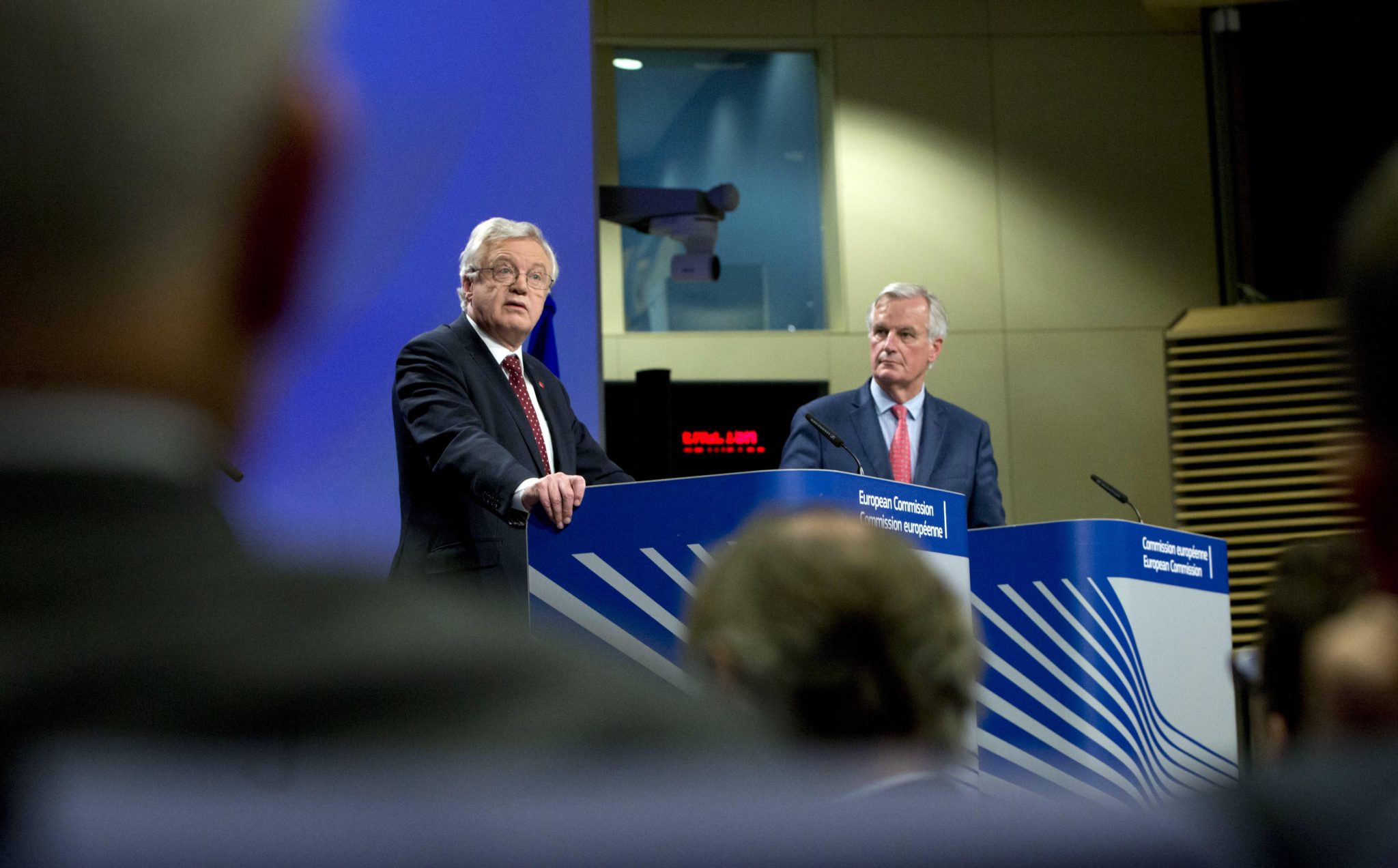
[authorbox authorid=”56″ title=”The Author”]
Michel Barnier today highlighted the need to “pick up the pace” in the Brexit negotiations, as he presented the EU draft Withdrawal Agreement to the public, prior to presenting it to the EU27 this afternoon. Of course, Barnier claimed that was this was being done in the name of transparency in order to keep the public informed of the negotiations as they occurred.
The much hyped draft agreement is set to be the basis for the next phase of the Brexit negotiations, translating into legal terms the subjects of the Joint Report from the negotiators of the EU and the UK Government.
It is comprised of six parts:
- Introductory provisions
- Citizens’ rights
- Goods placed on the market before the withdrawal date
- The Financial settlement
- Transitional arrangements
- Institutional provisions.
The draft agreement also underlines that the terms of the transition period are entirely non-negotiable, and are in effect a “take it or leave it” deal which will be dictated entirely by the European Union. We have also learned that not only will it not be the open ended transition period that Theresa May has discussed previously, but that all authority and jurisdiction for disputes over the Withdrawal Agreement will now be in the hands of the European Court of Justice, something that will undoubtedly bother an increasingly bold eurosceptic wing of the government.
The raft agreement also highlights the fact that UK Citizens living within EU member states will lose their access to free movement, and will no longer be able to move to a third member state once the British withdrawal has occurred. In regards to the EU citizens within the UK, Barnier has stressed that citizen’ rights and residency protections should continue until the end of the transition period.

However the focus of the press conference was almost entirely on the Irish border issues and the on-going challenges of the negotiations with the United Kingdom. The goals, Michel Barnier said, were to protect EU citizens and prevent a hard border, as well as further divisions, on the Irish island.
Barnier restated the European Union’s commitment to protecting the Good Friday Agreement, preventing a hard border between the republic of Ireland and the Northern Irish territory. He underlined the fact that the draft agreement is comprised of topics that have already been agreed by the EU and the UK, and is simply the legal representation of these topics.
[button color=”red” size=”big” alignment=”none” rel=”follow” openin=”samewindow” url=”https://www.vocaleurope.eu/?s=Brexit”]Curious for More?[/button]
Commenting on the already existing difference in rules between the Northern Irish government and the UK, he highlighted the three options highlighted in paragraph 49 of the joint report. Initially, it was agreed that the North-South cooperation in Ireland as well as the GFA were to be protected in one of three ways: Either in the agreement on the future EU-UK relationship, which has yet to be defined, the proposal of specific solutions by the United Kingdom, which have yet to be done, or “in the absence of agreed solutions”, the United Kingdom will maintain full alignment with the Internal market and Customs Union.
It appears that the only option according to Paragraph 49 is for the United Kingdom, or as hinted at by Barnier, Northern Ireland alone, to remain within the Single Market and therefore maintain the open border with the Irish republic. This would accomplish the goal of setting in stone the legal commitments necessary for the protection of rights of individuals and of the common travel area on the Irish Island.
However this has already received quite a bit of resistance within the UK, with former UK Brexit minister David Jones has called the EU Irish border position as “fantasy”, and even claimed that this new agreement “amounts to an annexure of Northern Ireland”. This was even rebuffed completely by Theresa May, who stated that “The draft legal text that the Commission has published, if implemented, would undermine the U.K. common market and threatens the constitutional integrity of the U.K. by creating a customs and regulatory border down the Irish Sea. No U.K. prime minister could ever agree to it and I will be making that absolutely clear.”
The frustration weren’t only being shown on the British side however, as on multiple occasions throughout the press conference we could see flashes of frustration and even exasperation being displayed by Michel Barnier, most likely due to the manner in which the British have handled the negotiations on their side. However this frustration was also possibly due to his recognition of the sheer complexity of the issues at hand, as well as the potential human collateral if these negotiations were to fail.
“Nobody should underestimate the human, social, legal, financial consequences of these negotiations. We have 43 years of integration and relations between the U.K. and the European Union that have to be unravelled here”



